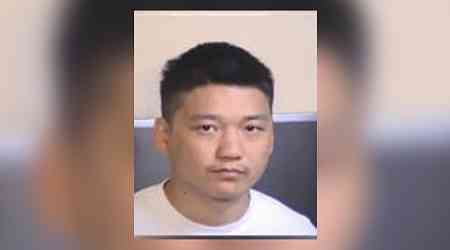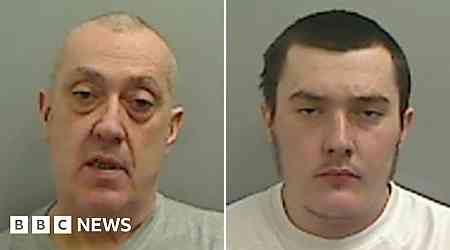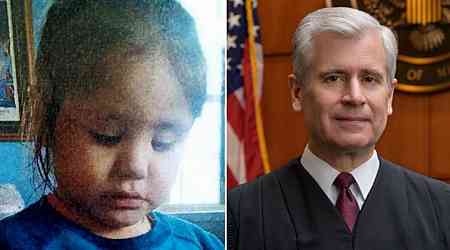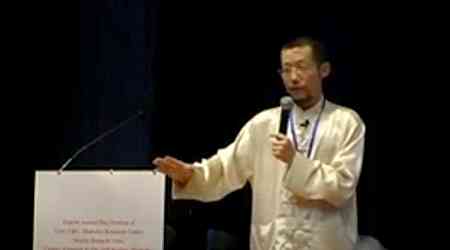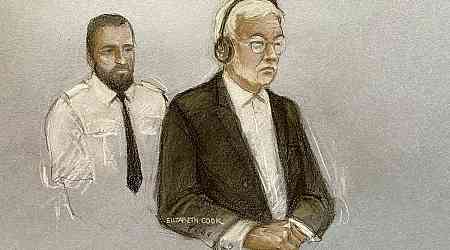On a hot July evening in Atlanta, Georgia, crowds of people were gathered in Centennial Olympic Park on the eighth day of the 1996 Summer Olympics.
33-year-old Richard Jewell had been more than seven hours into his shift as a security guard in the area when he noticed something odd.
A green military-style bag had been left unattended and nobody was claiming it. Jewell raised the alarm, and minutes after, 911 received a call from a phone booth near the park.
‘There is a bomb in Centennial Park. You have 30 minutes.’
Jewell began moving people away and out of the park, but at 1.20am, the 40 pound pipe bomb exploded – killing one woman and injuring more than 100 others.
The unsuspecting security guard saved many lives that day by spotting the bag and beginning evacuations. But even though Jewell was praised as a hero following the bombing, the narrative slowly shifted.
Within days, Jewell – a quiet security guard who lived with his mother – became a suspect in the 1996 Atlanta Olympic bombings.
Who was Richard Jewell?
Jewell was born in Danville, Virginia, to a father who worked for Chevrolet and a mother who worked in insurance. He moved to Atlanta with his mum and stepfather when he was young.
He worked in a variety of jobs before joining the Habersham County Sheriff’s OFfice in Georgia as a jailer in 1990. He was charged with impersonating a police officer after arresting a couple when he was working as a security officer.
Jewell, described as an ‘overzealous’ employee, eventually resigned and worked a brief stint as a campus police officer, before returning to Atlanta and getting a job as a security officer ahead of the 1996 Olympic Games.
While working in that job, he spotted the backpack which turned out to be a massive pipebomb, which exploded in the park, killing one woman and injuring more than 100.
Jewell’s attempts to move crowds away from the area saved countless lives on July 27, 1996, and he was praised for his efforts. But all of that changed with one headline from The Atlanta Journal three days later.
How did he become a suspect?
In the days following the bombing, Jewell hadn’t been considered a suspect by the FBI. On July 28, they received a call from the president of Piedmont College, where Jewell had worked briefly as a campus security guard. He told the FBI that Jewell could have been involved in planting the bomb.
On July 30, three days after the bomb detonated, The Atlanta Journal published an article titled ‘F.B.I. Suspects ‘Hero’ Guard May Have Planted Bomb.’
The newspaper didn’t cite its sources for the article, but it sparked a media firestorm – camera crews and reporters camped outside of Jewell’s home in the days following the allegation.
Why did they latch onto the idea that a security guard planted the bomb to become a hero? A case less than ten years earlier saw a volunteer firefighter in California set intentional fires to put them out, in order to be a ‘hero’.
On July 29, the FBI was advised that ‘Jewell fit the profile of a person who might create an incident so he could emerge as a hero.’ Now, he was considered a suspect – but not the only one.
But the idea of a man who helped save lives in the bombing being the man who actually planted it was a juicy news story – and most news organisations ran with it.
For Jewell, he had begun his ‘88 days of hell’. He was unable to leave his apartment without being swarmed by reporters and cameras.
When was his name cleared?
Three months after the damning headline claiming Jewell may have planted the bomb in Atlanta, his name was cleared.
The Justice Department wrote to Jewell’s lawyer that he was not the man they believed to be behind the bombing.
Jewell’s name was cleared – but his reputation was never the same, despite being the actual hero of the Olympic bombings.
He won multiple lawsuits against NBC, CNN and the New York Post. He went on to work small jobs in Georgia law enforcement.
Months after his name was cleared, Jewell told the New York Times: ‘I’m a lot more cynical than I used to be. I’m not as trusting as I once was. And I don’t think I’m as outgoing as I used to be.’
Jewell went on to marry his wife Dana in 1998, and remained with her until he died of heart failure and side effects of diabetes.
Though he was truly one of the heros of the tragic 1996 Olympic Bombings, he wasn’t the man who planted the bomb which killed a woman and injured hundreds.
That man wasn’t caught until 2003, after bombing two other locations.
Who was actually behind the 1996 Olympics bombing?
Eric Robert Rudolph was the lone wolf behind the deadly Atlanta bombing on July 27, 1996.
He was first named as a suspect in February 1998. Eventually, the bombings of a north Atlanta abortion clinic and a gay nightclub were linked to Rudolph – as well as the Olympic bombing, and one in Alabama.
The bombing in Centennial Olympic Park was the first time Rudolph detonated one of his explosives, and the largest. He was also the person who made the phone call to police, warning them about the bomb just minutes before it detonated.
He was put on the top ten most wanted fugitives list in May 1998, but was on the run for five years until he was found rummaging through a trash bin in Murphy, North Carolina in 2003.
Rudolph pleaded guilty to the charges and is serving multiple life sentences without the possibility of parole.
Have other Olympic Games had terror attacks?
The Atlanta bombing, while shocking and tragic, was not the deadliest attack made during the Olympics.
In 1972, the deadliest terror attack at the Olympic Games happened in Munich, when 11 Israeli athletes and coaches were killed by members of the Palestinian group Black September.
Dubbed the ‘Munich Massacre’, the group infiltrated the Olympic Village where the athletes were staying before breaking into the building and taking the Israeli team hostage.
While the situation was ongoing, the games didn’t stop.
West German police eventually intervened and killed five of the eight terrorists, but all of the hostages were killed in the process.
Since then, moments of silence have been observed at some Olympic ceremonies for the deceased athletes who were meant to compete in 1972.
Get in touch with our news team by emailing us at webnews@metro.co.uk.
For more stories like this, check our news page.




















